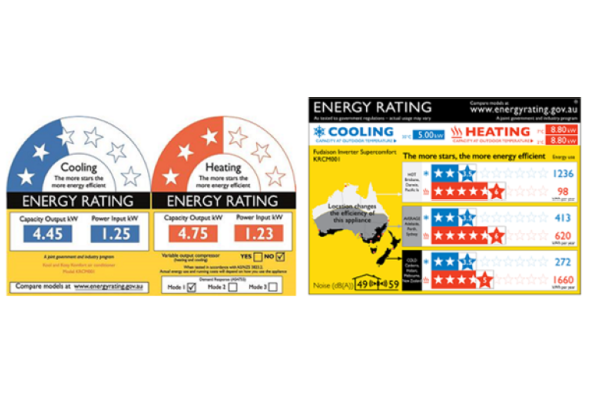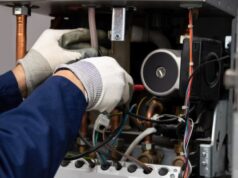
Energy efficiency ratings might seem like just another part of the paperwork when building or buying a home, but they play a key role in reducing your energy bills and making homes more comfortable year-round.
In Australia, homes are required to meet minimum energy efficiency standards under the National Construction Code (NCC). But going beyond these minimums can improve comfort, reduce environmental impact and even boost resale value.
Here’s what you need to know about energy efficiency ratings, how they’re calculated and why they matter.
What is an energy efficiency rating?
An energy efficiency rating measures how well a home uses energy for heating and cooling. It reflects how much artificial heating or cooling is needed to maintain a comfortable indoor temperature throughout the year, based on the home’s design, construction and location.
The rating is expressed as a number of stars out of ten. The more stars, the more thermally efficient the home is, meaning it stays naturally warmer in winter and cooler in summer without relying heavily on heaters or air conditioners.
The NatHERS system
In Australia, most residential energy efficiency ratings are calculated using the Nationwide House Energy Rating Scheme (NatHERS). This software-based assessment considers factors like:
- House orientation
- Window size, type and shading
- Insulation levels
- Building materials and thermal mass
- Ventilation and air leakage
- Local climate zone
Assessors input these details into NatHERS software to simulate how much energy would be needed to maintain comfort inside the home. The software then produces a star rating out of 10.
Under the National Construction Code, new homes must achieve a minimum 7-star rating in most parts of Australia. However, homes can legally score between 0 and 10 stars.
What the stars actually mean
| Star rating | What it means in practice |
|---|---|
| 0 stars | No insulation or thermal protection. Needs constant heating or cooling to stay comfortable. |
| 5 stars | Was the minimum standard in the past. Offers moderate efficiency, but may still require frequent heating or cooling. |
| 6 stars | The previous NCC minimum (before 2023). Better than average but not optimal. |
| 7 stars | Current NCC minimum. Offers good performance with lower reliance on artificial heating/cooling. |
| 8–10 stars | Very high performance. Designed for passive comfort with minimal energy use. |
The Whole-of-Home rating
As of 2023, the NatHERS framework now includes a Whole-of-Home rating alongside the star rating. This broader assessment considers all fixed appliances—such as heating, cooling, hot water systems, lighting and solar PV—to measure overall energy usage and greenhouse gas emissions.
It’s designed to give a more complete picture of how a home performs in real-world conditions, not just in terms of the building shell but also the equipment and technologies installed.
Why energy efficiency ratings matter
A higher-rated home can offer several practical benefits:
- Lower energy bills – Less heating and cooling = lower running costs
- More comfortable temperatures year-round – Without relying on appliances
- Better resale value – Buyers increasingly prioritise energy performance
- Reduced emissions – Less energy use means fewer greenhouse gases
- Futureproofing – As standards rise, higher-rated homes stay compliant longer
For anyone building or renovating, targeting a rating above the minimum can deliver a better return in comfort and energy savings over time.
How to improve your home’s energy rating
Whether you’re working with a designer or doing a retrofit, these upgrades can improve your energy rating:
- Add or upgrade insulation
- Install double glazing or low-e glass
- Improve window orientation and shading
- Use high thermal mass materials in the right places
- Eliminate air gaps and draughts
- Install energy-efficient lighting and appliances
- Add solar panels or a solar hot water system
- Use passive design techniques during the construction process
If you’re unsure where to start, a professional energy assessor can model your home’s current performance and suggest targeted improvements.
When is a rating required?
An energy efficiency rating is mandatory when:
- Submitting plans for a new home or major renovation
- Selling or renting a newly built home (in some states/territories)
- Meeting National Construction Code requirements during approval
Note that not all existing homes require a rating unless you’re building or making significant changes. However, understanding your home’s energy performance is always useful if you’re looking to reduce running costs or improve comfort.
In summary
Energy efficiency ratings are more than a regulatory requirement—they’re a tool to help you create a home that’s comfortable, affordable to run and environmentally responsible.
With new homes now needing a minimum 7-star NatHERS rating and Whole-of-Home assessments gaining ground, it’s more important than ever to factor energy performance into your design or renovation plans.





